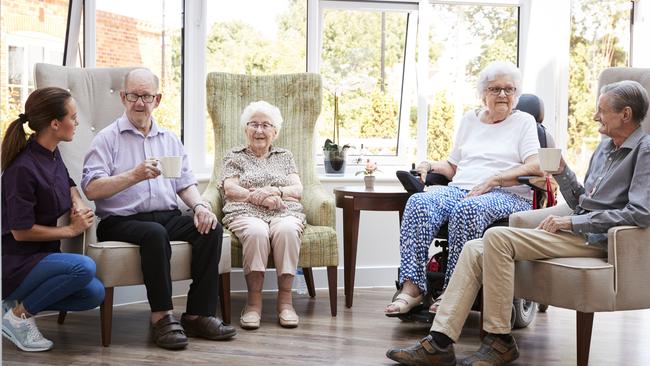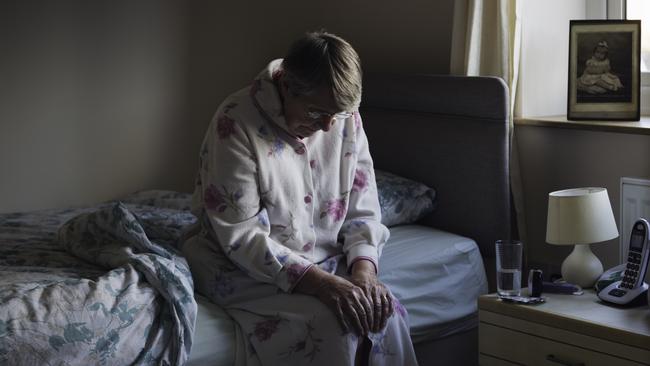Sexual rights in aged care being overlooked, La Trobe University study reveals
The sexual activity of Australians in aged care is often controlled by strict rules. See why many facilities are ignoring their residents’ intimate needs.

Victoria
Don't miss out on the headlines from Victoria. Followed categories will be added to My News.
The ability of older Australians to enjoy intimacy and express sexuality is often compromised — or even controlled — when they move into residential aged care.
That’s the findings of a study by Linda McAuliffe and Deirdre Fetherstonhaugh from La Trobe University’s Australian Centre for Evidence Based Aged Care who sent surveys to almost 3000 aged care facilities across the country.
They asked staff what influenced their decision-making about residents’ intimate relationships and sexual expression and found there were diverse staff responses.
The researchers say that while sex and older people remained a taboo topic for many, older people wanted to talk about it and would like health professionals to at least ask them if they would like to talk about it.
Their study also highlighted that only half of the facilities had written policies on sexuality, only one in six had policies on sexual health, and one third on sexual behaviour.

Professor Fetherstonhaugh said the reasons sexual activity of aged care residents may be controlled or compromised varied, but included a lack of privacy, unavailability of shared rooms with double beds, unlockable doors, lack of a partner or difficulty establishing new or maintaining old relationships.
She said a lack of legal guidance also compounded the issue.
“While legislation on mental capacity exists for legal, financial and medical decisions, with explicit criteria for when one’s decisions are to be upheld, this offers little guidance when it comes to older people’s sexual decisions in residential aged care,” Professor Fetherstonhaugh said.
The researchers also found the level of cognitive impairment and family disapproval influenced some staff views.
Dr McAuliffe says older people considering moving into residential aged care should be provided with information about how their intimacy needs will be respected and supported.
“At present, older people are expected to permanently move into residential aged care without knowing whether they will be able to share a bed with their partner ever again,” Dr McAuliffe said.
“We know that even when staff attitudes are positive, there are a range of barriers in aged care to helping older people enjoy their right to sexual freedom.”
Professor Fetherstonhaugh says sexuality in the residential aged care setting does pose a challenge to staff.
“This is particularly so when a resident has dementia and there are questions around capacity to consent to intimate behaviour,” she says.
“In such cases, staff negotiate a delicate balance between the resident’s right to sexuality and their professional duty of care.”
Their study, published recently in the Journal of Medical Ethics, provides a snapshot of how residential aged care staff make decisions regarding the intimacy and sexuality of older people.
“We would now also like to speak to people living in the community, potential future residents, about what is important to them so that aged care can start working towards this,” Dr McAuliffe says.
“Certainly intimacy needs to be considered in the future design of residential aged care facilities – for example, having double rooms or rooms large enough to accommodate couples,” she said.





